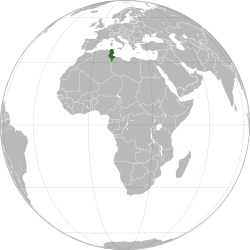Unrest Doesn’t Spell The Death Of The Arab Spring – OpEd
By CGNews
By Mondher Ben Hamida, Wafa Ben Hassine and Mohamed Malouche
By now, most people with access to the news have heard that once again, the Arab world is in major turmoil.
The events that took place on 14 September, when mobs of protesters attacked the US embassies in Tunis, Cairo, Khartoum and Sana’a, have undoubtedly undermined the transformative democratic wind blowing in the region. The tragic loss of a distinguished American diplomat and three members of his staff in Benghazi – the Libyan city that came to symbolise a new approach to American foreign policy in the Arab world – has tarnished the image of the fledgling Arab Spring.

Later, a group of extremists attacked the American school in Tunis. These attacks greatly damaged the image and economic prospects of a country – Tunisia – that has been enjoying a great deal of sympathy and support, both in the United States and throughout the world.
It has been particularly disheartening to watch a number of US politicians and policy experts rushing to write the obituary of the Arab Spring. Their arguments insinuate that all it took was a mere 20 months for the dream to go from cradle to grave, ironically in the same city: Tunis.
The reality is obviously much more complex. Arab Spring countries are undergoing a much-delayed and much-needed political and societal transformation, but the Arab Spring is still very much alive.
The chaotic scenes broadcast all over US cable networks the past two weeks could not be more misleading.
Partly thanks to the strong moral leadership and material support of President Obama and Secretary of State Clinton, evidenced by their early support for the interim Tunisian government last year, the MENA region is undergoing an irreversible transformation into a vibrant democracy.
As a group of young Tunisian Americans hailing from diverse professional backgrounds, we share two main objectives: to ensure a successful democratic transition in our home country, and to see democratic values and principles, such as freedom of speech and support for human rights, flourish in Tunisia.
We remain convinced that Tunisia, in particular, has all the ingredients necessary to succeed: strong institutions, a large middle-class, an active intellectual elite, advanced women’s status and geographic and cultural proximity to Europe. These ingredients nurture the thirst for democracy. Today, there is no going back to a domineering institution, be it a dictatorship or a theocracy.
Systems theory teaches us that the initial phase of a transformation is usually the most painful, fragile, and critical, as many forces, which are often at odds, come into play and jostle for domination. Tunisia’s experience is no exception. We should not expect a country where freedom of speech was nonexistent, civil society shackled and corruption widespread to suddenly become a perfect model of democracy.
By siding with the Tunisian youth against the regime of the long-time US ally President Zine Al Abidine Ben Ali, the image of the United States experienced an historic upgrade.
Arabs followed this shift in policy, which also contributed to the ouster of Hosni Mubarak in Egypt and led to the overthrow of Libya’s Muammar Gaddafi, with a mix of incredulity, gratefulness and naturally, suspicion.
The biggest loser throughout these historic events was al-Qaeda and its various affiliates, as this new US policy of supporting the democratic aspirations of Arab youth greatly undermined their recruiting efforts.
However, despite all the challenges, this new experiment is well worth it for the Tunisian people and the Arab world, as well as for the stability of Western economies. Tunisian democracy is starting to function. Fair and free elections were held for the first time ever in October 2011. Subjects that would have warranted arrests and torture if broached in public two years ago are now being openly debated on television.
For the sake of millions of people who deserve and need democracy, and for the sake of America’s own ideals and geo-strategic interests, Americans should be steadfast in supporting Tunisia. Let’s not allow the senseless violence of a few to put a historical process at risk. History will tell us that our efforts today will translate into one of the best investments we ever made.
Mondher Ben Hamida, Wafa Ben Hassine and Mohamed Malouche are members of the Tunisian American Young Professionals (www.tayp.org) which supports American-Tunisian partnerships and entrepreneurship in Tunisia.
